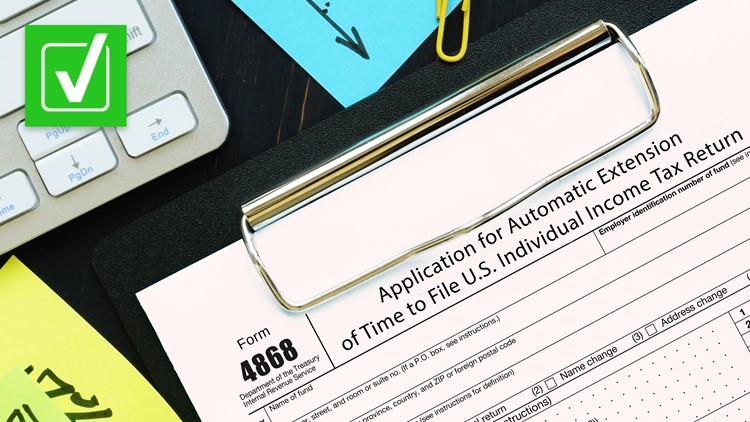Tax Day traditionally falls on April 15 in the United States, but in 2020 and 2021 the IRS pushed back the deadline to give taxpayers more time to file their income tax returns during the coronavirus pandemic. This year, the IRS decided not to extend the deadline, and millions of taxpayers were required to file their returns by Monday, April 18, 2022.
An estimated 19 million Americans requested an extension to file their 2021 income tax return, according to the IRS. Recent online search data shows that interest in the tax filing extension date is increasing as the deadline approaches.
THE QUESTION
Is the tax deadline for people who filed extensions coming soon?
THE SOURCES
THE ANSWER
Yes, the tax deadline for people who filed extensions is coming on Oct 17.
WHAT WE FOUND
If you requested an extension to file your 2021 tax return, you have until Oct. 17, 2022, to file an accurate and completed return. This is because Oct. 15, which is the usual filing extension due date, falls on a Saturday this year, according to the IRS and eFile, an IRS-authorized e-file provider.
The IRS is encouraging taxpayers who requested extensions to file their tax returns electronically as early as possible to avoid the last-minute rush ahead of the Oct. 17 deadline. If a taxpayer is due a refund, the IRS advises that they should choose direct deposit when filing electronically in order to get their refund in the fastest time possible.
Filing electronically as soon as possible can also help taxpayers who did not file an extension and missed the April 18 deadline avoid further penalties and interest if they owe taxes, the IRS says on its website.
“We continue to urge people to file electronically and do it as soon as possible. Even if people have an extension to file until October, sending the tax return as soon as possible can either help get them a refund quicker or it can save them money if they owe by avoiding additional interest and penalties,” IRS Commissioner Chuck Rettig said.
The IRS explains that “an extension to file a tax return is not an extension to pay taxes.” This means that penalties and interest could apply to any amount taxpayers still owe following the original April 18 deadline.
“Taxpayers were still required to pay 100% of the taxes owed by April 18, while the looming [Oct. 17] deadline lets you submit the actual return without incurring extra fees or penalties,” SoFi, a personal finance company and online bank, says on its website.
The IRS shares a few e-filing options to help taxpayers who filed for an extension:
- IRS Free File: Eligible individuals can use the IRS Free File program to prepare and file their 2021 federal tax return for free. Taxpayers can also choose the brand-name tax preparation software company that is best for them. Some companies offer free state tax return preparation. Those who earned more than $73,000 have the option to use IRS Free File Fillable Forms.
- MilTax online software: MilTax online software is also available for members of the military and certain veterans, regardless of income. This software is offered through the Department of Defense.
- Commercial software: The software uses a question-and-answer format that makes doing taxes easier. The return is signed electronically and transmitted through IRS-approved electronic channels.
- Authorized e-file provider: Tax pros accepted by the IRS electronic filing program are authorized IRS e-file providers. They are qualified to prepare, transmit and process e-filed returns.
Taxpayers who owe taxes can review all of their payment options online at IRS.gov. These options include paying taxes through an online account with IRS Direct Pay or paying by debit card, credit card, or digital wallet. The IRS also has options for people who can't pay their taxes, such as applying for a payment plan.



